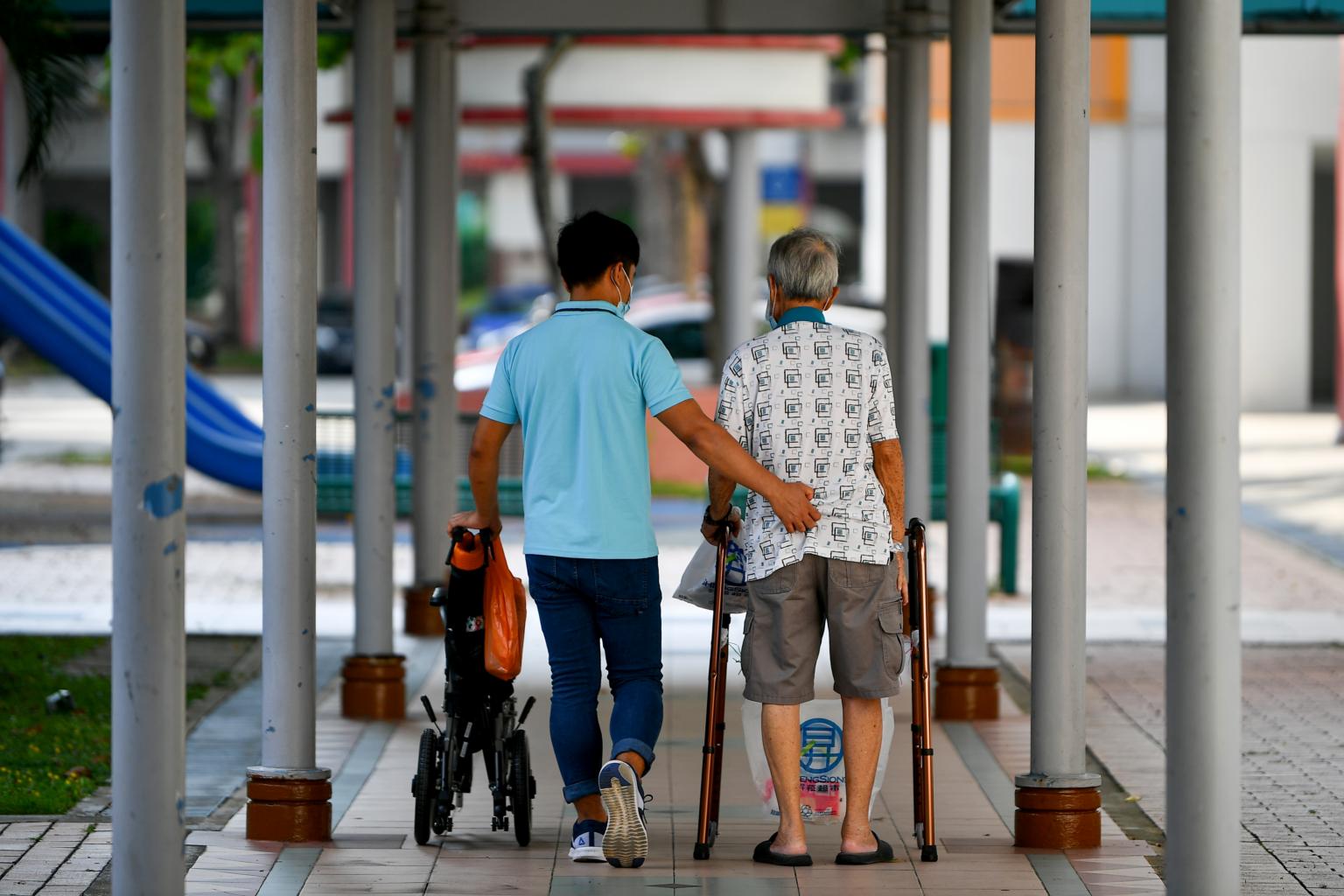Caregivers deserve better and society must better value what they do: President Halimah
Sign up now: Get ST's newsletters delivered to your inbox

Full-time caregiving is tough and arduous and can take a toll on one's physical and mental health.
PHOTO: ST FILE
SINGAPORE - Caregivers deserve better, and society must stop placing so little value on their work that even caregivers do not value themselves, said President Halimah Yacob on Friday (March 25).
Full-time caregiving is tough and arduous and can take a toll on one's physical and mental health. With people living longer and healthcare standards improving, this burden will increase tremendously and must be tackled on all fronts - be it by families, companies or the Government, she added.
Madam Halimah was speaking at the virtual launch of a fund-raising campaign by the Singapore Council of Women's Organisations (SCWO) to mark International Women's Day, which is celebrated annually on March 8.
SCWO is the national coordinating body of more than 60 women's organisations here.
Calling caregiving an important role that has disproportionately fallen on the shoulders of women, Madam Halimah - who is SCWO's patron - noted that many women have had to give up or slow down their careers to care for children, elderly parents or family members with disabilities.
"I'm always puzzled whenever I meet homemakers and they tell me that they are 'not working' because of caregiving responsibilities," she said.
"Often, I've had to disabuse them of this notion that they are not contributing economically - because they stay at home to do work which would otherwise have to be performed by paid staff either in an institution or through paid home caregiving."
Women become full-time caregivers out of necessity, but what sustains them is their love for their family, Madam Halimah added, asking the audience to imagine what it would be like to take care of a parent with dementia "24/7 with no respite".
She called on families to better value and support caregivers. Siblings could take turns to look after frail, elderly parents and give the main caregiver some time off to recharge.
Companies could also back staff with caregiving duties by introducing measures such as flexible work arrangements and paid family care leave.
And the Government could help by making it easier for caregivers to access affordable respite care, with more options to choose from, Madam Halimah said.
She pointed to financial insecurity as an added concern for many caregivers without savings for their own retirement needs.
"Fear of destitution is a real concern, and we can do more to allay such fears," said the President, adding that caregiving for children with disabilities also deserves particular attention due to a general lack of assistance in that area.
Caregiving support is among the issues covered in a White Paper on Singapore Women's Development due to be discussed in Parliament soon.
Announced in September 2020, it is expected to outline a range of concrete proposals to further gender equality in other areas such as workplace opportunities and protection from violence.
"We have advanced considerably as a nation when it comes to empowering, uplifting and protecting Singapore women," said Madam Halimah.
"However, as our society evolves, new challenges have also surfaced. Respect and partnership remain key building blocks for our collective future."


